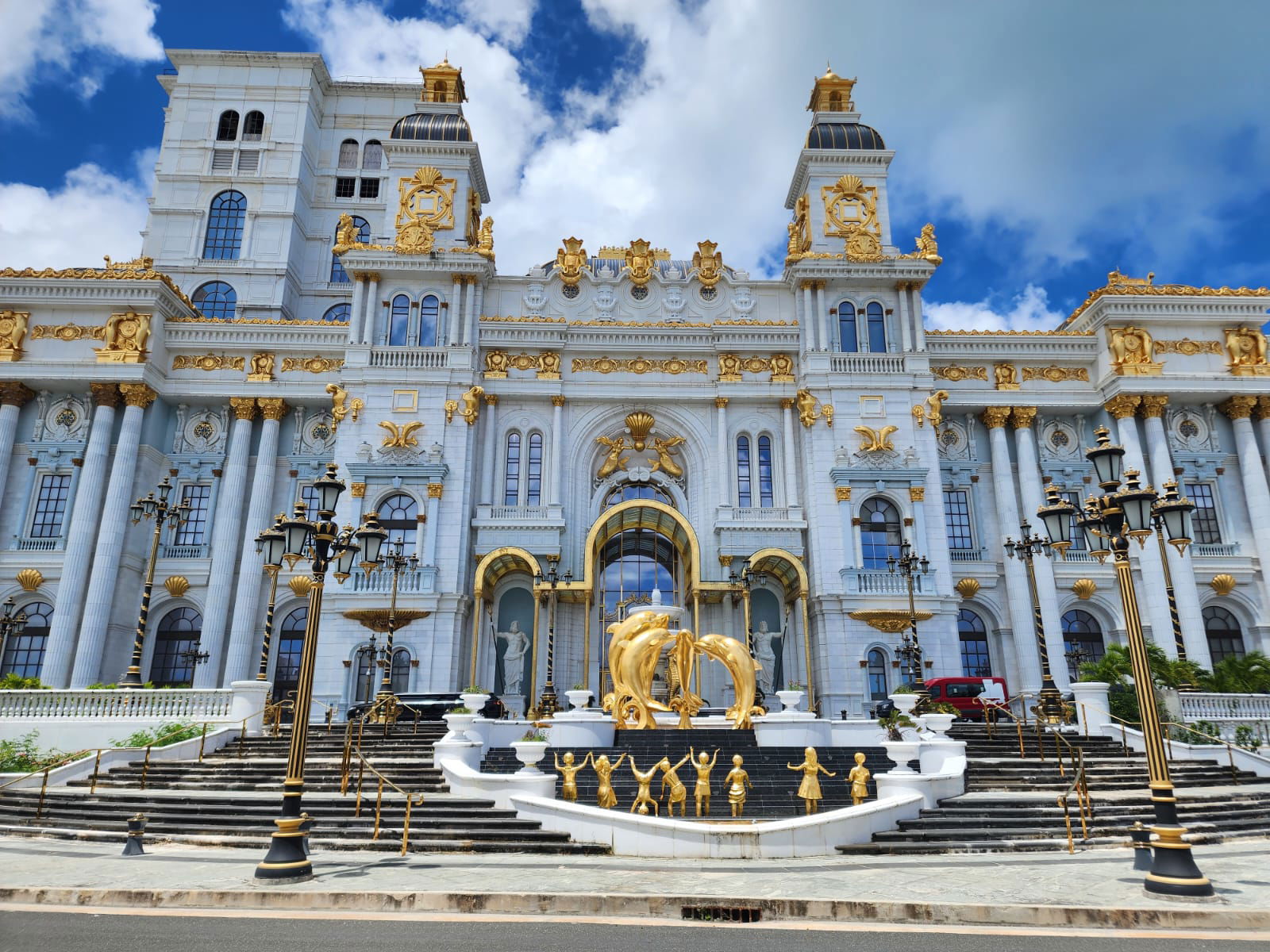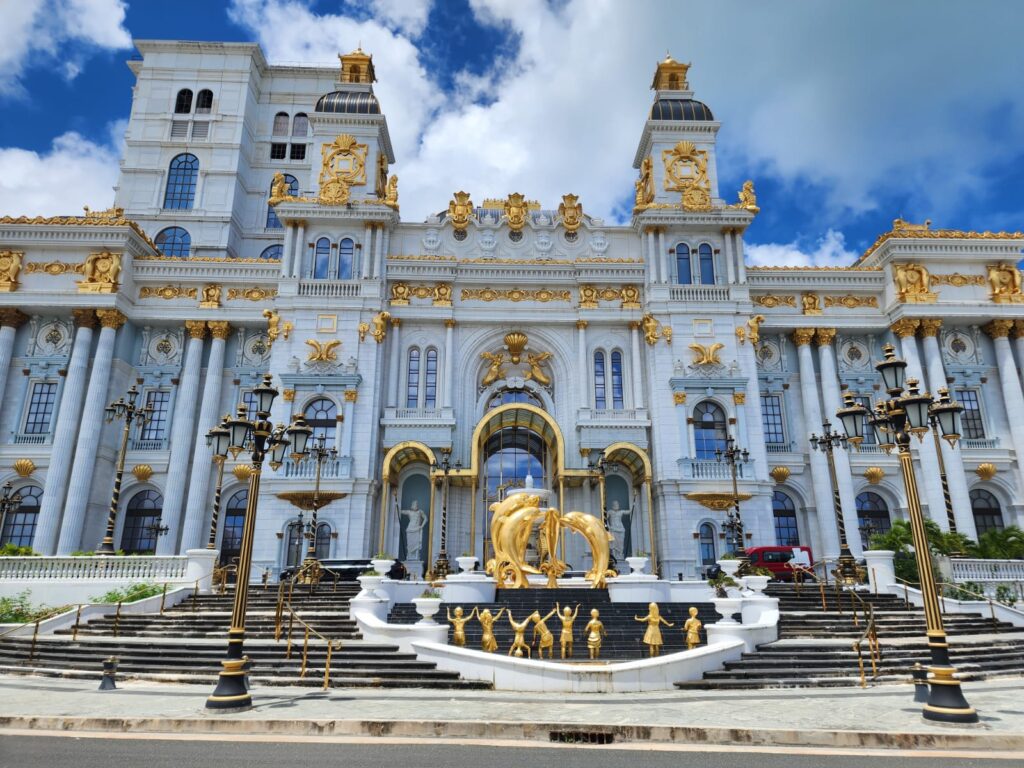
THE CNMI Office of the Attorney General has filed an opposition to Imperial Pacific International’s request to approve the sale of its hotel-casino and other real estate assets to Loi Lam Sit for $10 million.
IPI, through attorney Chuck Choi, requested the federal bankruptcy court for an order approving the proposed competitive bidding and procedures for the sale of IPI’s major assets.
Choi also requested the court for a hearing on Nov. 20, 2024 to consider the final approval of the sale of IPI’s property free and clear of liens and encumbrances to Loi Lam Sit or to a higher bidder.
Chief Solicitor J. Robert Glass Jr., for his part, told the court that the CNMI government is the largest unsecured judgment creditor. The bidding procedure ignores the lease agreement between IPI and the Department of Public Lands, he added.
“The bidding process ignores applicable lease provisions which govern the transfer of the lease and is therefore deficient. Land in the CNMI is sacred and tied directly to the cultural history of peoples of Northern Marianas Descent,” Glass said.
“Article 13 of the lease agreement requires advance written approval by DPL for any transfer or assignment. Article 13 also requires a 15% payment as an assignment fee based on the capital gain of the leased land. The bidding procedure provides for neither of these requirements or any of the other requirements of Article 13 and thus must be rejected by the court,” Glass added.
He said the bidding process allows the “stalking horse” purchaser — Loi Lam Sit — to “win” without making any showing that they could complete the building project or that they have sufficient capacity and capital to comply with the terms of the lease which require the hotel to be completed.
“In this way,” Glass said, “the stalking horse bidder could win without any requisite showing they could comply with the terms of the lease which is a violation of 11 USC §365(b)(1)(C), which requires adequate assurance of future performance. This is also deficient and grounds to reject the bidding procedure.”
According to online sources, a “stalking horse purchaser” refers to an initial bidder chosen by a bankrupt company to make the first offer on its assets. This bidder sets the minimum price that the assets can be sold for in a bankruptcy auction. The term “stalking horse” comes from the idea that the initial bid serves as a benchmark, encouraging other potential buyers to make higher offers.
Simple reason
Glass said “IPI is not attempting to get the highest price.”
“The court should reject the bid procedures for the simple reason that the bid procedures do not benefit the creditors. The entire procedure is designed to benefit the insider, Loi Lam Sit, who originally proposed to loan $7 million to finance the bankruptcy proceeding, but ultimately only loaned approximately $1.5 million for purposes of a Chapter 11 Liquidation,” Glass added.
“As was disclosed at [a previous] hearing…, Loi Lam Sit was originally approached by debtor (IPI). This was later amended to be a ‘friend of the debtor.’ This change at the very least makes it questionable that Sit is an arms-length buyer as opposed to an insider,” Glass said.
90 containers
He reiterated that IPI cannot be attempting to get the best price in a sale “because debtor [IPI] is not even aware of what they are selling. The mere fact that there are ‘90 containers of unknown value’ shows that IPI is not doing their due diligence to ensure the highest price for the assets. Debtor is not even aware if the 90 containers are full of gold bullion to be melted down to cover the gold-plated statues it has outside its building. Debtor has not even taken the smallest of steps to open the containers to figure out and price what is inside. This shows debtor is not pursuing the best price to repay its debts, and this alone is grounds for rejection of the plan.”
IPI, moreover, does not even list all the cars it is selling or their various conditions, Glass said.
“Again, IPI is not aware if valuable cars are to be sold and the approximate pricing for the vehicles. At the very least the court should require debtor to do the job that is required to be done in bankruptcy, or it should reconsider its decision on Chapter 7 liquidation or dismissal,” Glass added.
Interested investor
The Office of the AG also joined the Dotts Law Firm in its objection to the bid procedure proposed by IPI.
Attorney Michael Dotts said he has been in contact with an investor and the investor has expressed interest in acquiring the property.
“A proper procedure needs to be put in place so that other investors can obtain due diligence material,” he said. “[IPI] is in possession and control of material needed for potential purchasers to consider the investment. These materials include blueprints, construction inspection reports, permits, constructions contracts, and estimates of what it will cost to complete the building. A ‘bid package’ should be assembled by [IPI]. The potential bidder from the United States has advised that bid packages are generally provided when properties are sold in bankruptcies. The time for investors to consider bidding should only start to run when they are provided with the bid package. Further, investors should be given time to have their own architects and engineers inspect the building, or a neutral architect or engineer should provide a report on the building’s condition. The preferred approach would be for [IPI] to fund [the] hiring [of] the expert. … Providing such a report with the bid package may increase the interest in the purchase of the property and result in a higher sales price,” Dotts said.
He noted that the current proposal “is that if an offer of $10,300,000 is made by Nov. 19, 2024, live bidding in $100,000 increments will be triggered at the court that same day. Otherwise, the stalking horse gets the property for $10,000,000. The Dotts Law Office proposes that 90 days after the bid package is made available to investors, sealed bids be submitted. This will encourage the stalking horse bidder to make a higher bid to fend off potential other bidders. If one or more bids are received, and if there is a substantial difference in price, the property can be sold to the highest bidder. However, if more than one bid is received, and if the prices are roughly equivalent, a bid committee can consider other factors, such as the ability of the bidders to actually complete construction of the project. A bid committee can include the creditors committee, the United States Trustee, and the Department of Public Lands. It is in the best interest of the CNMI and of all creditors who reside here that not only the highest price is obtained for the property, but that the purchaser actually completes the project.”
Glass, for his part, said: “It is clear there is outside interest in the assets to be sold and a procedure that is fair and equitable for others should be employed. This process will necessarily take time and require IPI to open its books for the relevant blueprints, plans, and other papers necessary for companies to conduct proper due diligence. It will also require [IPI] to provide a more detailed account of its assets including the contents of the 90 containers and vehicles. This is in the best interest of the creditors to ensure they are compensated at the fullest value and not an arbitrary value assigned to award an insider a direct tract to gaining possession of the building and debtor’s assets.”
IPI filed for Chapter 11 bankruptcy in the District Court for the NMI on April 19, 2024, saying it owed creditors over $165.8 million.
Chapter 11 bankruptcy allows a business corporation to restructure its debts and continue operating.
Among the IPI creditors with the largest unsecured claims were the CNMI Treasury with $62 million for casino license fees; MCC International, $34.9 million for construction services; the Commonwealth Casino Commission, $17.6 million for licensing fees and penalties; the law offices of Hughes Hubbard & Reed, $8.58 million for legal fees; Century Estate Investment Ltd., $8 million for an unpaid loan; CNMI Division of Revenue and Taxation, $7.9 million for unpaid business gross revenue tax; and Joshua Gray, $5.68 million for default judgment.











